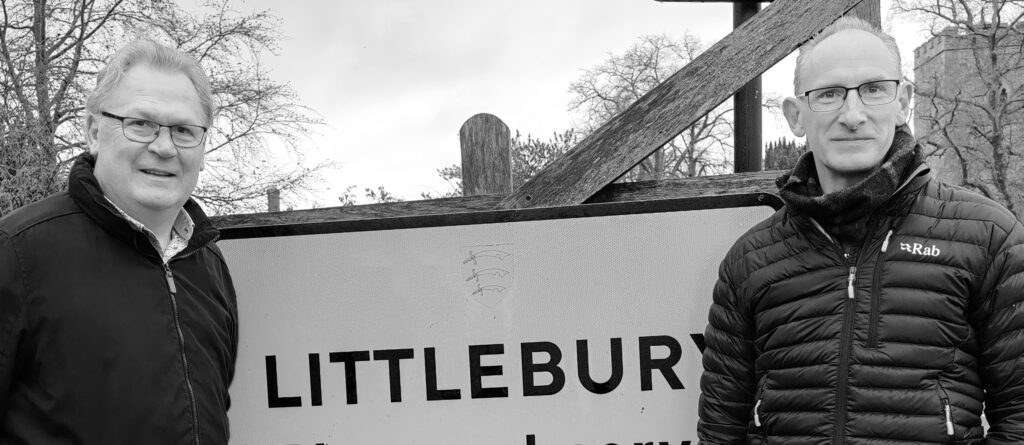Last year, a new initiative was started to help Littlebury residents save money and reduce their energy consumption, the Littlebury Energy Project (LEP). Ian Dunham, who has lived in Littlebury for 29 years, met with Chris Dodge, the project’s coordinator, to learn more.

Ian Dunham: What is the Littlebury Energy Project, and how did it arise?
Chris Dodge: The project started from discussions between the Parish Council, Uttlesford District Council (UDC) and Essex County Council. Its aim is to look at how we move the whole village away from fossil fuels. Other local villages are watching what’s happening here, ready to start similar projects. We are funded by a UDC’s Zero Carbon Communities Fund grant.
Whatever type of energy people use to heat their homes, the place to start is to stop energy leaking from our homes. This will save money and make the home healthier and more comfortable. The UK has some of the leakiest homes in Europe, and even for the UK, Littlebury’s homes are very leaky!
Ian: What is your role?
Chris: I’m a founder and Chair of Saffron Walden Community Energy (SWCE), and though I live in Saffron Walden, I’m managing the LEP. Nearly all SWCE’s work is by volunteers, but we have some paid work on the LEP.
Ian: How can Littlebury Residents benefit?
Chris: At this stage, we’re talking to as many people as possible about how they can make their homes warmer. Please get in contact and we can:
- Help identify grants. There is some very generous funding via our council for which some people will be eligible.
- Lend you a thermal camera or do a thermal imaging survey of your home to help identify where heat may be leaking.
- Do an EPC survey, possibly for free.
- Check your loft insulation or suggest improvements to insulation.
- Provide DIY energy saving kit such as LED lamps or draft proofing.
We’re very keen to help those caught up in the cost-of-living crisis, but we also want to support anyone who is thinking of installing other new technologies. The project’s members have experience of solar panels, heat pumps, electric cars etc. we’re happy to share and talk about.
Ian: Is there any money available to help with these changes?
Chris: For certain households, there is some generous funding (i.e. grants, not loans), for home retrofit available. These are mainly via UDC, but we can put you in touch with the right people there.
For everyone wanting to upgrade their heating to a heat-pump, then the Central Government’s Boiler Upgrade Scheme will contribute £7,500 towards that. Again, this is a grant and does not need to be repaid.
Ian: Are there particular issues in Littlebury that need to be addressed?
Chris: One of the reasons Littlebury was chosen is that heating is mainly via oil, which is more polluting than gas and generally more expensive.
Littlebury also has a large conservation area, restricting the type of work you can do. This is worse for listed buildings. Nonetheless we are exploring options around what can be done and have some good case studies.
Ian: Who is involved in LEP, and how can Littlebury residents join in?
Chris: We have a core group of enthusiastic village volunteers in our working group. Even though I manage the project, most work is done by villagers for villagers. Please get in touch if you are interested in helping, or would like to talk about anything mentioned here.
Ian: What’s coming up next for LEP? Anything else we should know?
Chris: At the moment, we are focusing on helping improve home energy efficiency, but next year we will look more at renewable technologies; heat-pumps, solar panels etc. We are planning an information day at the village hall (16th March), including some open homes where people discuss their own experiences.
